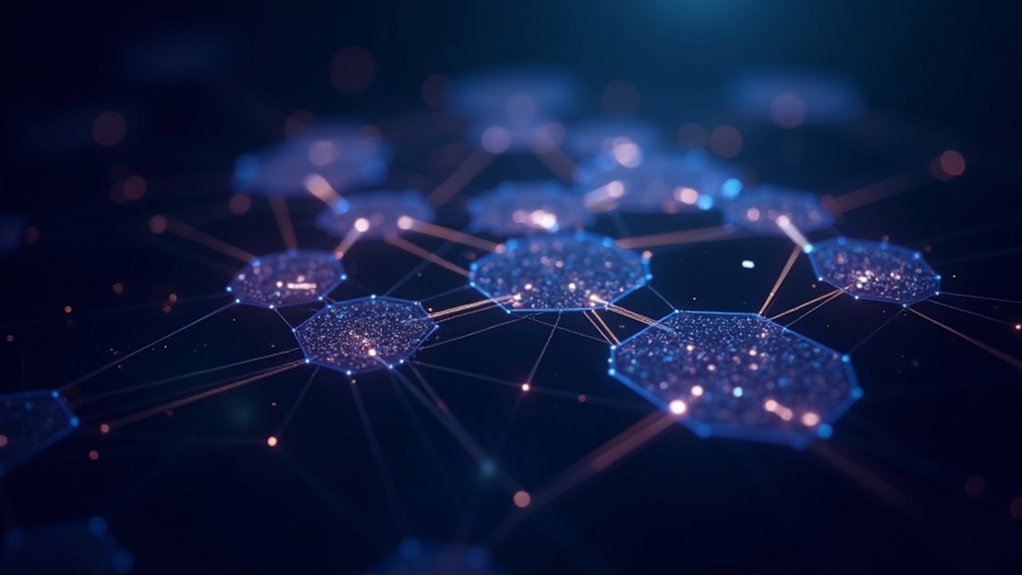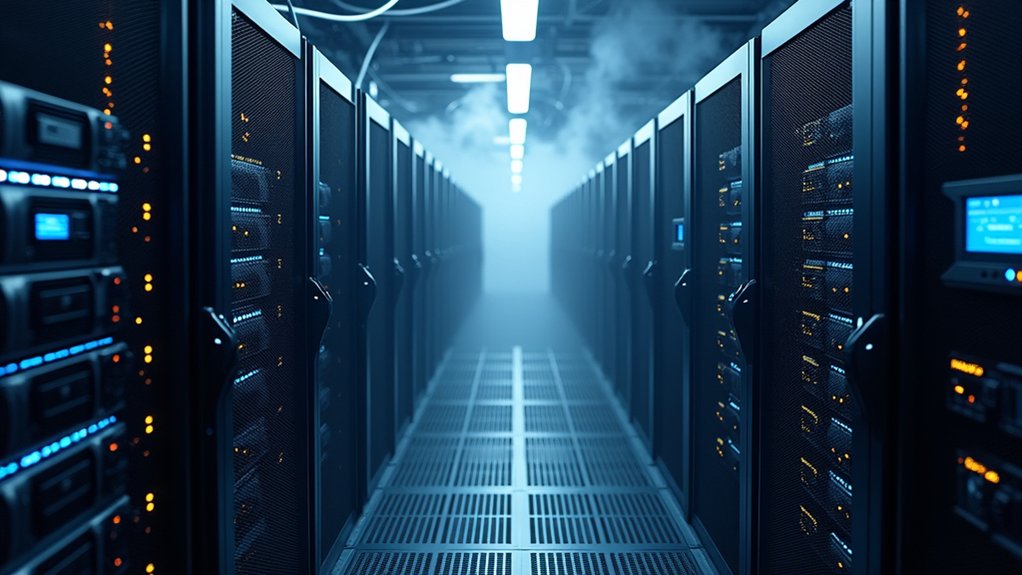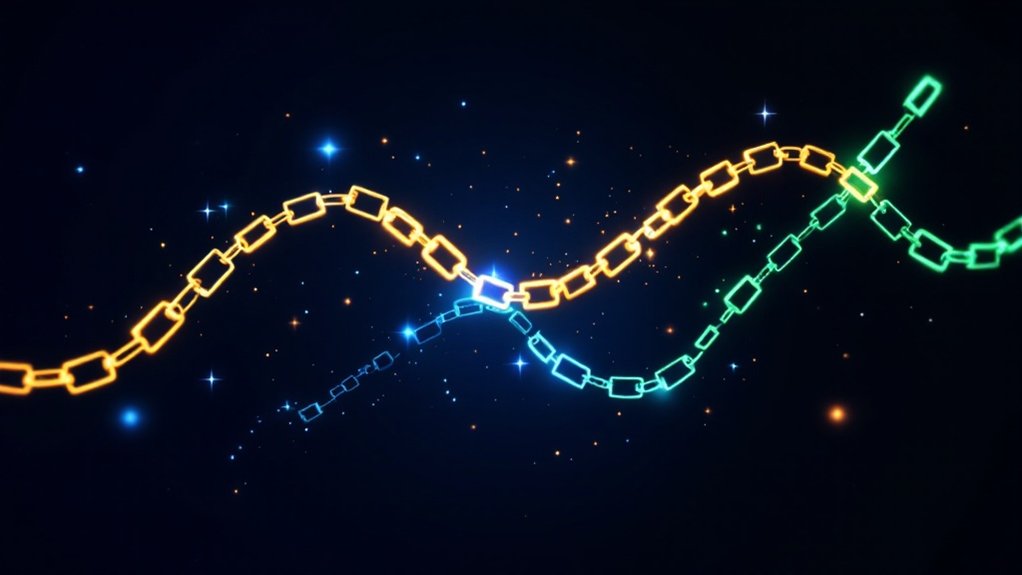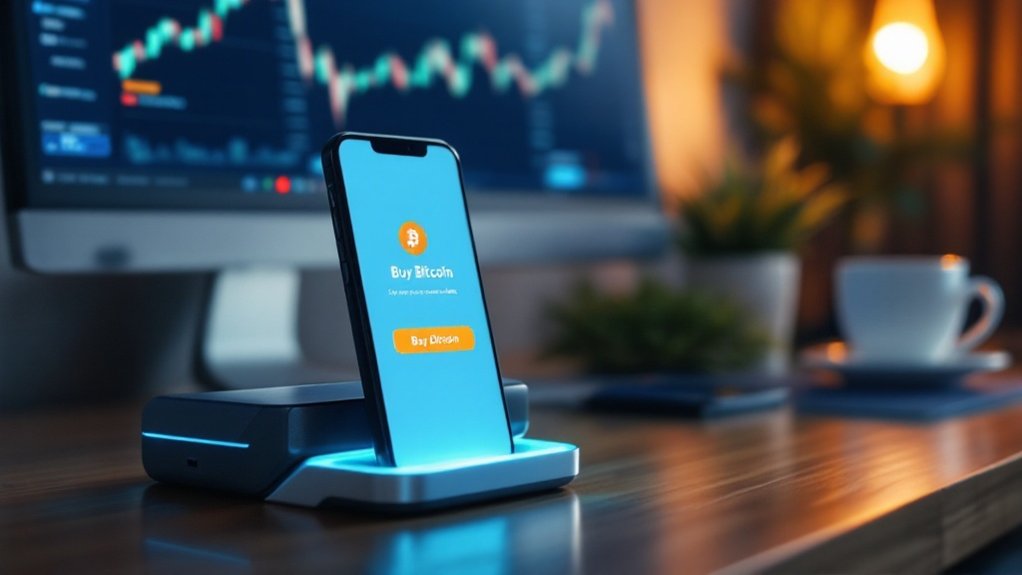A DAO (Decentralized Autonomous Organization) is a blockchain-based entity governed by smart contracts and community voting instead of traditional leadership. Members use governance tokens to propose and vote on organizational actions, with decisions executing automatically once approved. DAOs operate across various sectors including protocol management, investment, social coordination, and grant distribution. They eliminate hierarchical structures while enhancing transparency through immutable blockchain records. Understanding DAO architecture reveals how these organizations balance democratic governance with operational efficiency.
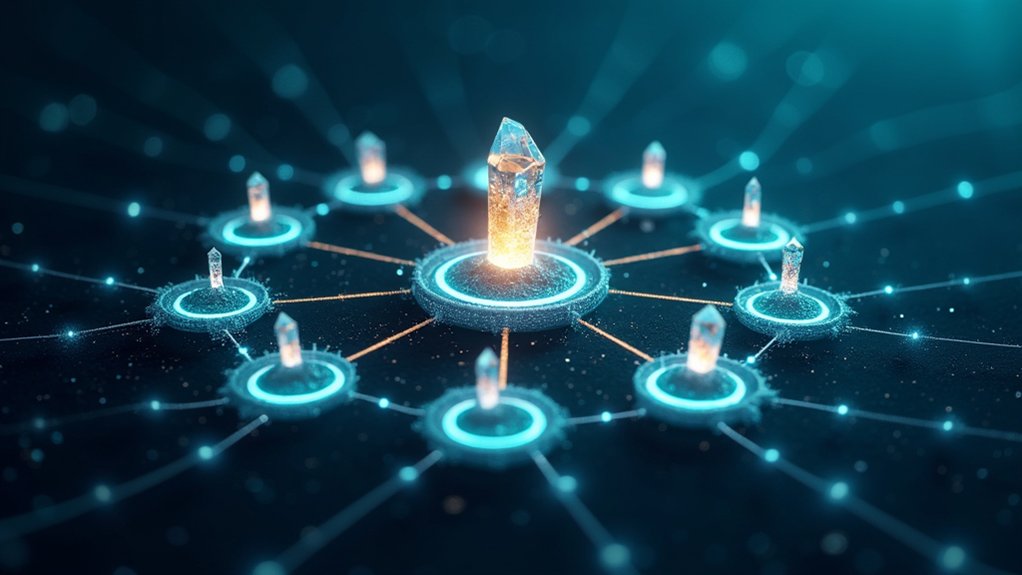
While traditional organizations rely on hierarchical management structures, Decentralized Autonomous Organizations (DAOs) represent a groundbreaking approach to collective governance in the cryptocurrency ecosystem. These blockchain-based entities operate without central authority, instead leveraging smart contracts and community participation to function with unprecedented transparency.
DAOs exist on open-source blockchains where all transactions and governance actions are permanently recorded, creating immutable records of organizational activities. These organizations enable members to participate in direct governance regardless of their geographic location.
Blockchain's transparent ledger enshrines every DAO action, creating an unalterable historical record of collective decisions.
The architecture of a DAO consists of several critical components working in concert. Smart contracts serve as the foundational code, establishing operational rules and automated execution processes. Governance tokens grant voting rights to community members, enabling direct participation in decision-making. The blockchain infrastructure provides security and transparency, while treasury management occurs through programmatic control rather than individual discretion.
Operational processes within DAOs follow a structured pattern. Members submit proposals for organizational actions, token holders vote according to their stake, and approved decisions execute automatically through smart contracts. This system eliminates traditional management layers while maintaining organizational functionality. As one industry analyst noted, "DAOs represent the logical evolution of organizational structure in a digital-first world."
The DAO ecosystem has diversified significantly, with specialized variations emerging for different purposes. Protocol DAOs like MakerDAO govern decentralized finance platforms, while investment DAOs collectively manage capital resources. Social DAOs focus on community building, collector DAOs acquire and manage assets, and grant DAOs distribute funding to worthy projects across the blockchain landscape. These organizations ensure that proposals must receive majority approval before being implemented, though the threshold for such approval varies between different DAOs.
Proponents highlight DAOs' numerous advantages, including radical transparency, reduced intermediary requirements, and global participation opportunities. The automated execution of decisions via smart contracts increases efficiency while potentially creating more equitable governance structures.
However, significant challenges persist. Regulatory frameworks remain uncertain across jurisdictions, smart contract vulnerabilities pose security risks, and governance attacks through token accumulation threaten DAO integrity.
Notable examples demonstrate the evolving DAO landscape. While the early 2016 experiment called "The DAO" suffered a catastrophic hack, modern implementations have refined security practices.
Recent initiatives like ConstitutionDAO, which attempted to purchase a rare copy of the U.S. Constitution, showcase the potential for collective action. As DAOs continue integration with Web3 and DeFi sectors, they increasingly challenge traditional organizational paradigms while establishing new models for decentralized collaboration.
Frequently Asked Questions
How Are DAO Voting Rights Determined and Distributed?
DAO voting rights are determined through several mechanisms.
Token-based systems allocate voting power proportional to token holdings, potentially creating plutocratic structures.
Quadratic voting reduces wealth concentration effects by scaling power with the square root of tokens held.
Reputation-based systems reward participation rather than holdings.
Many DAOs implement hybrid models combining these approaches, often requiring token staking or implementing time-locks to customize governance structures to specific organizational needs.
What Legal Status Do DAOS Have Across Different Countries?
DAOs' legal status varies significantly worldwide. Wyoming pioneered recognition by granting them LLC status, while federal U.S. regulation remains undeveloped.
The EU's MiCA framework doesn't specifically address DAOs, creating regulatory ambiguity across member states.
Switzerland offers flexibility through existing legal structures without explicit recognition.
Select jurisdictions like Malta and UAE's Ras Al-Khaimah have implemented specific frameworks, with Malta being the first country to legally recognize DAOs through licensing requirements.
Can DAOS Own Physical Assets Like Real Estate?
DAOs can indeed own physical assets like real estate, though implementation varies by jurisdiction. In states like Wyoming, DAOs with legal recognition can directly own property.
Alternatively, DAOs may establish LLCs as holding entities for real estate assets. CityDAO demonstrated this capability by purchasing 40 acres in Wyoming, while Cabin DAO operates coliving spaces.
Tokenization enables fractional property ownership, though regulatory challenges and the need for interfacing with traditional property systems remain significant hurdles.
How Do DAOS Protect Against Governance Attacks?
DAOs protect against governance attacks through multiple defensive strategies. They limit attack value by restricting governance scope and implementing time-locks on proposal execution.
Many DAOs increase voting power costs through token lock-up periods and quadratic voting systems. Security measures include multi-signature requirements, time-delayed execution, and regular smart contract audits.
Some employ threshold encryption for proposal details and circuit breakers that can halt operations during suspicious activity.
What Happens if DAO Treasury Funds Get Hacked?
When DAO treasury funds are hacked, multiple consequences unfold simultaneously. Operations typically halt as remaining assets are frozen.
Members face immediate financial losses, often triggering emergency governance votes. Technical teams conduct forensic analysis while attempting to trace and recover stolen funds.
The DAO must implement crisis management protocols, including potential reimbursement strategies, security upgrades, and constitutional revisions.
Such breaches frequently damage reputation and may attract regulatory scrutiny, potentially threatening the organization's continued existence.
References
- https://www.coinbase.com/learn/crypto-basics/what-are-decentralized-autonomous-organizations
- https://limechain.tech/blog/benefits-of-daos-in-2023
- https://www.cloudwards.net/what-is-a-dao/
- https://www.telefonica.com/en/communication-room/blog/what-does-dao-mean-in-blockchain-technology/
- https://tokenminds.co/blog/knowledge-base/benefits-of-dao-development
- https://www.cointribune.com/en/what-is-a-dao-decentralized-autonomous-organization/
- https://www.investopedia.com/tech/what-dao/
- https://learncrypto.com/feed/articles/whats-the-benefit-of-a-dao
- https://www.chainalysis.com/blog/introduction-to-decentralized-autonomous-organizations-daos/
- https://limechain.tech/blog/dao-voting-mechanisms-explained-2022-guide
